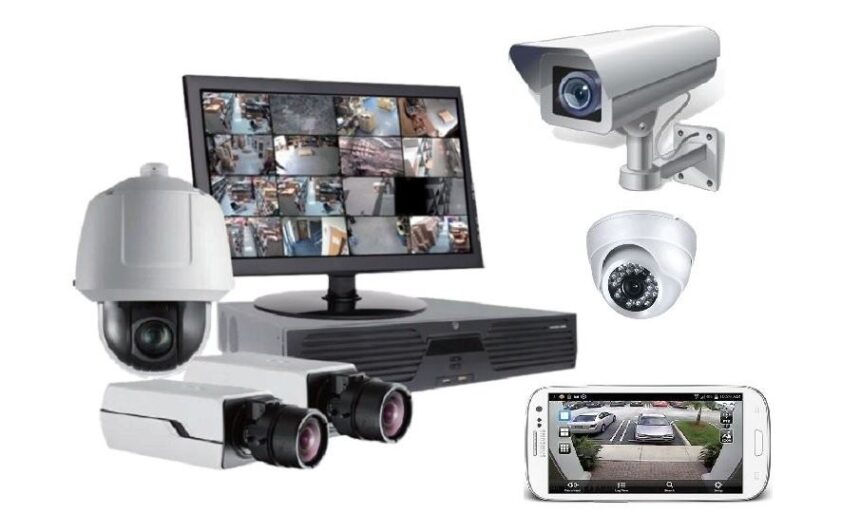Security has become a critical concern for businesses of all sizes and industries. Whether you run a small retail shop, a bustling corporate office, or a sprawling industrial facility, safeguarding your assets, employees, and customers should be a top priority. One of the most effective ways to enhance business security is by implementing a robust Closed-Circuit Television (CCTV) system. Modern CCTV systems not only deter criminal activity but also provide invaluable insights into daily operations, helping businesses make informed decisions. Here’s an in-depth look at why prioritizing CCTV systems is essential for modern businesses and how they contribute to comprehensive security.
The Growing Need for Business Security
Business environments are constantly exposed to risks ranging from theft and vandalism to data breaches and workplace misconduct. As organizations expand and evolve, so do the security challenges they face. Traditional security measures such as physical guards and simple alarm systems are no longer sufficient to address these multifaceted threats. Modern businesses need advanced surveillance solutions that can:
- Monitor activities in real-time.
- Record evidence for future reference.
- Provide remote access for management.
- Integrate with other security systems for comprehensive protection.
This is where CCTV systems come into play as an indispensable tool for modern business security.
Key Benefits of CCTV Systems
1. Deterrence of Criminal Activities
One of the most significant advantages of installing CCTV cameras is their ability to deter criminal behavior. The mere presence of visible surveillance cameras can discourage potential intruders, shoplifters, or vandals from targeting your business. Criminals are less likely to act when they know their activities are being recorded and can be traced back to them.
2. Real-Time Monitoring
Modern CCTV systems offer real-time monitoring capabilities, allowing businesses to keep an eye on their premises at all times. Whether it’s monitoring a retail store during business hours or keeping an eye on an office after hours, real-time surveillance ensures immediate action can be taken in case of suspicious activity.
3. Evidence Collection
In the unfortunate event of a crime, CCTV footage serves as invaluable evidence for law enforcement and insurance claims. High-definition cameras can capture clear images and videos, making it easier to identify perpetrators and resolve disputes. Recorded footage also helps in legal proceedings, providing indisputable proof of incidents.
4. Improved Employee Productivity
CCTV cameras are not just about security; they can also enhance employee productivity. When employees know they are being monitored, they are more likely to adhere to company policies and maintain a professional attitude. Surveillance can also identify areas where processes can be optimized, leading to increased efficiency.
5. Enhanced Customer Experience
In retail and service-oriented businesses, CCTV systems can help improve customer experience. By monitoring customer behavior and interactions, businesses can identify pain points and make adjustments to enhance service delivery. Additionally, cameras in parking lots and entrances reassure customers about their safety, fostering trust and loyalty.
6. Remote Access and Management
Thanks to advancements in technology, modern CCTV systems allow business owners and managers to access live feeds and recorded footage remotely through smartphones, tablets, or computers. This is particularly beneficial for businesses with multiple locations or for owners who travel frequently.
7. Cost-Effective Security Solution
Compared to hiring additional security personnel, installing and maintaining a CCTV system is a cost-effective solution. Once installed, these systems require minimal upkeep and can operate round-the-clock, providing uninterrupted security coverage.
Integrating CCTV Systems with Other Security Measures
To maximize their effectiveness, CCTV systems should be integrated with other security measures such as access control systems, alarm systems, and motion detectors. This integrated approach creates a layered security network that offers comprehensive protection against various threats. For instance:
- Access Control Systems: Restrict entry to sensitive areas while CCTV cameras monitor who enters and exits.
- Alarm Systems: Trigger alarms based on activity detected by CCTV cameras, ensuring immediate response.
- Motion Detectors: Activate cameras to record only when movement is detected, saving storage space and energy.
Factors to Consider When Choosing a CCTV System
Investing in a CCTV system requires careful consideration of your business’s unique needs. Here are key factors to keep in mind:
1. Type of Cameras
- Dome Cameras: Ideal for indoor use and provide a wide-angle view.
- Bullet Cameras: Suitable for outdoor surveillance with long-range capabilities.
- PTZ Cameras: Allow pan, tilt, and zoom functionalities for flexible monitoring.
- IP Cameras: Offer high-definition video and can be connected to a network for remote access.
2. Coverage Area
Determine the areas you want to monitor and ensure the cameras have the necessary range and field of view. Use a combination of wide-angle and zoom lenses to cover both open spaces and specific points of interest.
3. Storage and Recording
Choose a system with adequate storage capacity to retain footage for a reasonable period. Modern systems often use cloud-based storage or Network Video Recorders (NVRs) for easy access and scalability.
4. Night Vision
For businesses that operate after hours or in low-light environments, cameras with infrared or low-light technology are essential.
5. Scalability
As your business grows, your security needs may change. Opt for a CCTV system that can be easily expanded to accommodate additional cameras and features.
Addressing Privacy Concerns
While CCTV systems offer numerous benefits, it’s important to address privacy concerns to maintain trust with employees and customers. Businesses should:
- Clearly communicate the purpose of surveillance.
- Avoid installing cameras in private areas such as restrooms or changing rooms.
- Comply with local laws and regulations regarding surveillance.
Transparency and adherence to ethical practices will ensure that your CCTV system is viewed as a tool for safety rather than intrusion.
Real-Life Examples of CCTV Impact
1. Retail Stores
A major retail chain reported a 30% reduction in shoplifting incidents after installing a network of CCTV cameras. The footage also helped them identify and recover losses from repeat offenders.
2. Corporate Offices
A tech company implemented CCTV systems to monitor server rooms and restricted areas. This prevented unauthorized access and ensured compliance with data security protocols.
3. Manufacturing Facilities
A factory installed CCTV cameras to monitor production lines and identify inefficiencies. This not only improved security but also enhanced operational efficiency.
Future Trends in CCTV Technology
The future of CCTV systems lies in advanced technologies such as:
- Artificial Intelligence (AI): AI-powered cameras can detect unusual behavior, recognize faces, and trigger alerts.
- Cloud Integration: Cloud-based CCTV systems offer unlimited storage and easy access to footage from anywhere.
- 4K Resolution: Ultra-high-definition cameras provide crystal-clear images, making it easier to identify details.
- IoT Connectivity: Integration with the Internet of Things (IoT) allows seamless connectivity with other smart devices.
Conclusion
In an era where security challenges are constantly evolving, modern businesses cannot afford to overlook the importance of CCTV systems. These versatile tools provide a cost-effective, reliable, and scalable solution for safeguarding assets, ensuring employee safety, and improving operational efficiency. By investing in a well-designed CCTV system and integrating it with other security measures, businesses can create a comprehensive security framework that meets their unique needs.
Prioritizing CCTV systems is not just about preventing losses; it’s about fostering a safe and secure environment that promotes trust, productivity, and peace of mind for all stakeholders. In today’s competitive landscape, this is a critical advantage that no business can afford to ignore.




